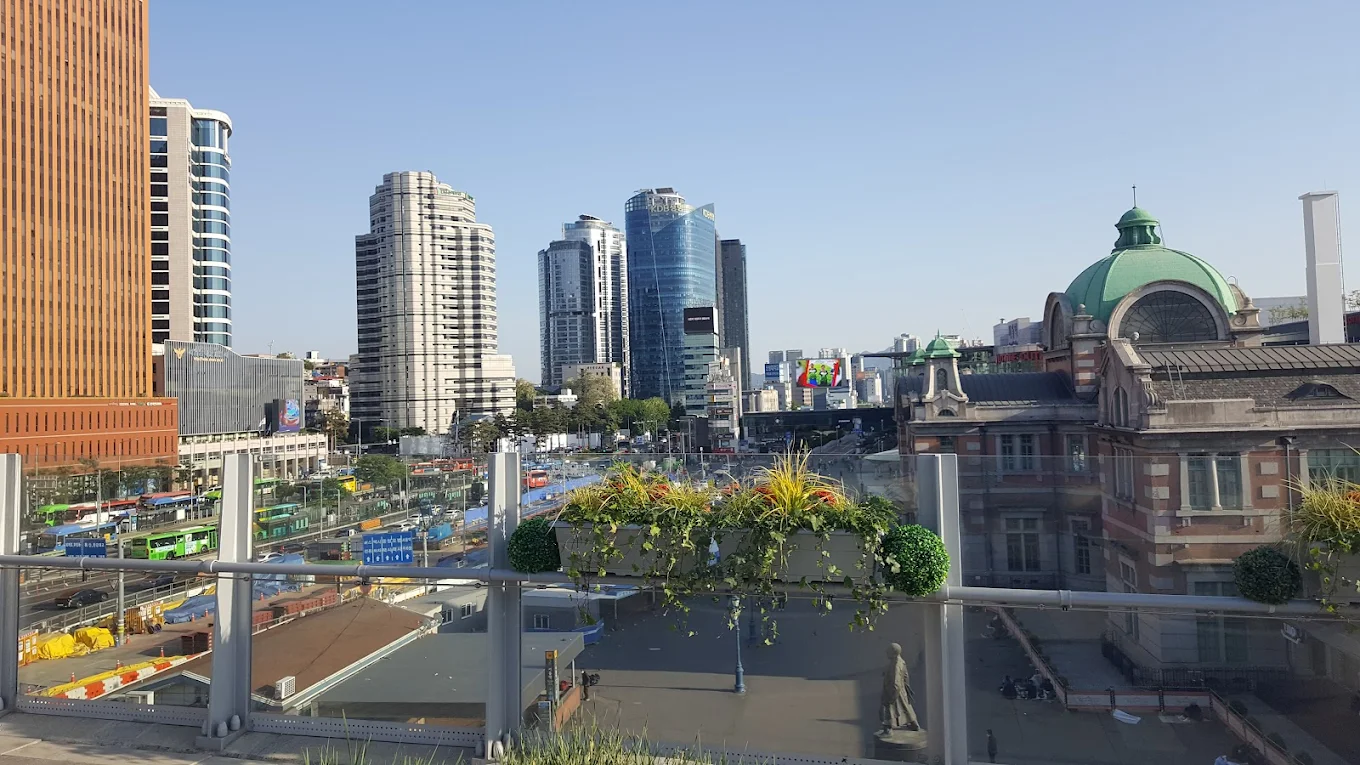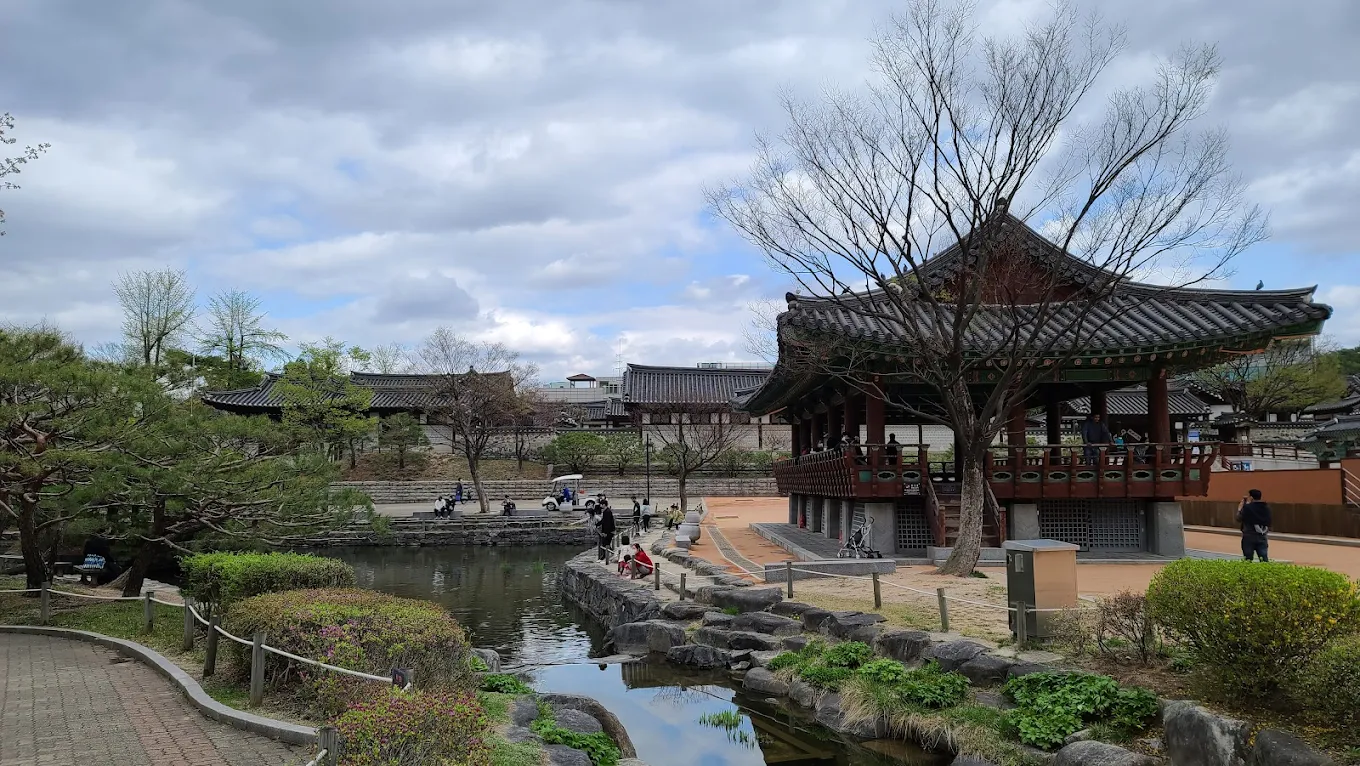Table of Contents
ToggleLooking for Namhansanseong Fortress Travel Guide?
Where Mountains Guard Stories, and Stones Remember the Crown
I didn’t plan to cry.
But standing on the weather-worn stone walls of Namhansanseong Fortress, I felt something shift — like time folding gently inward. The wind whispered through the pines, and for a moment, I wasn’t just a traveler. I was a witness.
A witness to a kingdom’s last stand, and to a strength that spoke not in battles — but in stillness.
Getting There: An Easy Escape from Seoul
Namhansanseong-ro, Gwangju-si, Gyeonggi-do, South Korea
Ideal seasons: Fall (October–November) for golden forests or Spring (April–May) for blooming serenity.
Public Transportation
Subway: Line 8 → Sanseong Station (Exit 2)
Bus: Transfer to Bus 9 or 52, get off at Namhansanseong Fortress stop
Taxi/Car: From central Seoul, it’s a 30–40 minute ride. Parking available near the entrance.
A Fortress Shaped by Fear and Faith
More than 2,000 years old, rebuilt and fortified during the Joseon Dynasty, Namhansanseong was never meant to be beautiful. It was built to survive.
In the cold of 1636, King Injo and his royal court took refuge here during the Second Manchu Invasion. As soldiers circled the mountains, the king wept, ministers debated, and citizens built — brick by brick — a shield for the heart of Korea.
And now, centuries later, the walls still stand.
Wandering Through Memory: Top Sights with a Story
South Gate (남문 – Jiwhamun)
As you pass under this majestic stone arch, imagine the king’s guards once standing tall — alert, proud, afraid — ready to defend their people.
Royal Emergency Palace (행궁)
Modest in size, but heavy in silence. This is where Korea’s monarch faced surrender and survival. Walk slowly here — this is not just architecture. It’s legacy.
Walking the Fortress Wall
The trail hugs the mountain like a protective arm. As you walk it, your heartbeat rises with each view — valleys below, forests around, history beneath.
I saw a grandfather walk here with his grandson.
“Why are we here?” the boy asked.
“To remember,” the old man said.
And they walked on, hand in hand.
Seongnyeongjeon Shrine & Cheongnyangsa Temple
Breathe in the incense. Listen to the wind and the occasional chanting. These aren’t attractions — they’re places where memory lives on in reverence.
After the Story: Taste the Mountains
Hungry? You will be — this place works up an appetite for warmth. And the surrounding village welcomes you like family.
Baeksuk (백숙) – Ginseng chicken boiled to nourishing perfection. It tastes like care in a bowl.
Pajeon (파전) – Crisp, savory pancakes, ideal with a bowl of makgeolli under the autumn leaves.
Sanchae Bibimbap (산채비빔밥) – Rice and mountain greens, seasoned with tradition and love.
Locals cook slow. Meals here are not rushed. Sit on the warm floor. Let time stretch.
Cultural Kindness: Travel With Respect
Let nature lead — stay on the paths, protect the forest’s peace.
Greet fellow hikers with a nod or a quiet “Annyeonghaseyo” (안녕하세요).
At shrines and temples, bow slightly and speak in whispers — these are living places of reflection.
A Half-Day Itinerary for Soulful Travelers
| Time | What You’ll Feel |
|---|---|
| 9:00 AM | Arrival under the pine canopy — the air cooler, calmer |
| 9:30 AM | Walk the South Gate and imagine ancient armor clanking |
| 10:00 AM | Visit the Emergency Palace — silence will say enough |
| 11:00 AM | Hike a section of the wall — let your lungs and heart expand |
| 12:30 PM | Eat at a local hanjeongsik house — flavors that comfort |
| 2:00 PM | Tea at a quiet café — journal, reflect, return anew |
Capture More Than Pictures
Take a photo of the fortress wall hugging the mountain, but remember to pause and just look with your own eyes.
Photograph the temple’s curve under the sky, but also breathe in the silence.
Snap the steaming baeksuk at your table, but don’t forget — the taste will linger longer than the photo ever will.
Conclusion
Namhansanseong isn’t loud.
It doesn’t sparkle.
It waits.
It waits for those who want more than selfies and souvenirs.
It waits for those who want to feel what a people once felt.
Hope. Grit. Defiance. Surrender. Grace.
Come not just to hike.
Come not just to learn.
Come to remember.
Because in the hush of the forest, and the hum of the old stones, Korea tells you a story only the heart can understand.




